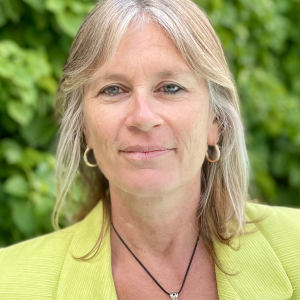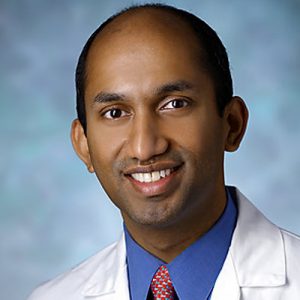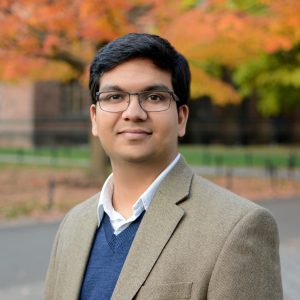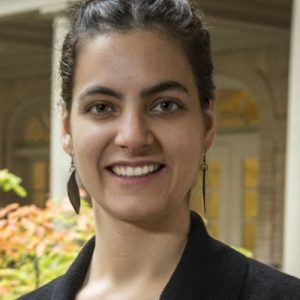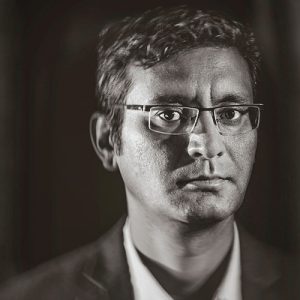Affiliated Faculty
LISTED ALPHABETICALLY
Ritu Agarwal, PhD
Wm. Polk Carey Distinguished Professor Carey School of BusinessRitu Agarwal is the Wm. Polk Carey Distinguished Professor of Information Systems and Health at the Johns Hopkins Carey Business School. She is also the founding co-director of the Center for Digital Health and Artificial Intelligence (CDHAI) Dr. Agarwal is an expert in the strategic use of information technology, digital transformation of healthcare, health analytics, and artificial intelligence applications in health. Prior to joining the Carey School, she was a Distinguished University Professor and the Robert H. Smith Dean’s Chair of Information Systems at the Robert H. Smith School of Business, University of Maryland, College Park. She was also the Founding Director of the Center for Health Information and Decision Systems (CHIDS) at the Smith School. As a scholar working at the intersection of social science, data science and technology, Dr. Agarwal’s research seeks to apply advanced digital technologies to healthcare practice and delivery, and to unravel the underlying behavioral, psychological, and social processes that enable and constrain successful healthcare interventions. She has been a pioneer in research related to digital technologies and health among scholars in leading business schools, and has devoted her research efforts towards improving healthcare quality, promoting equity and access, and reducing costs. She has published over 100 articles in leading business and healthcare journals such as Proceedings of the National Academy of Sciences, Information Systems Research, MIS Quarterly, Management Science, Journal of the American Medical Informatics Association, and Health Affairs.
- Business of Health
- Digital Health
Smisha Agarwal, PhD
Associate Professor; Director, Center for Global Digital Health Innovation Johns Hopkins Bloomberg School of Public HealthDr. Agarwal's research is aimed at improving maternal and newborn health in low-income settings through strengthening community health systems and leveraging innovative technological solutions. Over the last decade, she has developed methods for evaluating programs that employ digital tools such as mobile phones for health service delivery. She has also led a series of systematic Cochrane reviews that have been leveraged by the WHO to develop global guidelines on the use of digital tools to strengthen health services. She continues to work with bilateral and multilateral agencies to support development and implementation of routine health information systems. Specifically, her research is focused on- 1. The effectiveness of the use of digital devices by community health workers as decision-aids to improve delivery of primary health care services, especially for mothers and infants; 2. Using predictive analytics and machine learning algorithms based on routine monitoring data to enhance our understanding of quality of care, create safety nets to care for high-risk populations and improve effectiveness of reproductive health services; 3. Use of social media websites and data to understand health patterns and behaviors. Currently, she is working in collaboration with the Population Council, and colleagues at Pathfinder International (Uganda) and Zanmi Lasante (Haiti) to conduct a multi-country study using discrete choice experiments to understand incentive preferences of community health workers in Kenya, Bangladesh, Uganda and Haiti.
- Digital Health
- Maternal & Child Health
Rina Agarwala, PhD
Associate Professor; Director of Undergraduate Studies Krieger School of Arts and SciencesDr. Agarwala studies how vulnerable populations, particularly workers, assert their rights through social movements. Her research has examined a range of working populations (including informal workers and migrant workers), workers’ identities (including class, gender, and caste), and worker industries (including construction, tobacco manufacturing, garment manufacturing, trash collection, domestic work, and agricultural labor).
- Human Rights
- Political Sciences
Abdulgafoor Bachani, PhD, MHS
Associate Professor Johns Hopkins Bloomberg School of Public HealthMy research focuses on health systems, as well as developing and implementing innovative approaches to measuring the burden of and preventing injury and disabilities, as well as enhancing access to rehabilitation services. I hold a particular interest in developing approaches for: 1) the measurement of disability and understanding the long-term health, economic, and societal consequences of injuries; 2) enhancing the generation and use of valid and reliable data for injury prevention, disability, and rehabilitation in low-resource settings; 3) applying novel information and communication technology approaches to injury prevention, disability, and rehabilitation; and, 4) developing sustainable capacity for research and practice in the field of injury prevention, disability, and rehabilitation.
- Digital Health
- Health Systems
- Injury Prevention
Judy Bass, PhD, MPH
Associate Professor Johns Hopkins Bloomberg School of Public HealthOur global mental health program, housed within the department of Mental Health, takes a multi-disciplinary collaborative approach to create actionable solutions to the promotion of mental health, and the prevention and treatment of mental health and psychosocial problems in low-resource contexts around the world.
- Mental Health
Sara Bennett, PhD
Professor & Vice Chair in the International Health Department; GKII Faculty Co-Chair Johns Hopkins Bloomberg School of Public HealthSara Bennett, PhD, is an accomplished and respected figure in the field of health policy and systems research. As a Professor and Vice Chair in the International Health Department of the Johns Hopkins Bloomberg School of Public Health, she also serves as the Director of the Health Systems Program. Her areas of expertise include health workforce issues such as motivation and planning, health financing, and health markets in low- and middle-income countries. Dr. Bennett’s research has had a significant impact on the development of the field, and she has made important contributions to institutional capacity development, health systems governance, and the use of evidence in policy and decision-making. Her career includes both academic and policy positions, including former Chair of Health Systems Global, editor of Health Policy and Planning, and Executive Director of the Alliance for Health Policy and Systems Research at the World Health Organization. Dr. Bennett’s dedication to bridging the gap between academia and practice, as well as building institutional capacity for health research internationally, is evident in her strong commitment to making a real-world impact. She graduated with distinction from Oxford (MA), Cambridge (MPhil) and London School of Economics (PhD). Follow Dr. Bennett on Twitter @saracbennett for updates on her latest research and thoughts on health policy and systems.
- Health Systems
- Policy
- Public Health
- International Health
Chetan Bettegowda, MD, PhD
Jennison and Novak Families Professor of Neurosurgery Johns Hopkins School of MedicineWe are working to develop biomarkers for cancer of the central nervous system. In particular, we are studying ways to detect tumor derived DNA in the CSF of individuals with brain cancers. We hope the levels of tumor derived DNA can be used to aid in clinical decision making.
- Neurosurgery
- Cancer
Uttara Bharath Kumar, MHS
Senior Program Officer II & Team Leader Johns Hopkins Bloomberg School of Public HealthTechnical Advisor for Social and Behavior Change (SBC) Team Leader for Johns Hopkins Center for Communication Programs (CCP) India Uttara Bharath Kumar works on the research, design, implementation and evaluation of global interventions that address social, structural and behavioral barriers to positive health outcomes. Since 1993, she has worked in health areas ranging from RNMCH, HIV/AIDs, TB and malaria to non-communicable diseases, including cancers and mental health. Drawing from behavioral science, design thinking, entertainment-education and other SBC approaches, some of the programs she has led in Africa and Asia, have won prestigious awards. In addition to co-facilitating SBC capacity strengthening workshops and courses in 15 countries, she had led the annual South Asia Regional workshop on Leadership in Strategic Communication (LSC) since 2012. She has also been closely involved in founding and mentoring locally-governed SBC organizations in India and Zambia.
- Infectious Diseases
- HIV
- Tuberculosis
- Mental Health
- Non-Communicable Diseases
- Cancer
- Public Health
Robert Bollinger, MD, MPH
Raj & Kamla Gupta Professor of Infectious Diseases; Professor of Medicine, Public Health, and Nursing Johns Hopkins School of MedicineDr. Bollinger is the Raj and Kamla Gupta Professor of Infectious Diseases at the Johns Hopkins University (JHU) School of Medicine, and he holds joint appointments in International Health at the Johns Hopkins (JH) Bloomberg School of Public Health, and in Community Public Health at the JH School of Nursing. He is the Founding Director of the JH Center for Clinical Global Health Education (now CCGHE-ID), Associate Director for Medicine of the JH Center for Global Health, and serves on the Advisory Team for the Johns Hopkins Precision Medicine Center of Excellence for COVID-19. He is board certified by the American Board of Internal Medicine in internal medicine and infectious diseases.
- Infectious Diseases
- COVID-19
- Hepatitis
- HIV
- Pneumonia
- Tuberculosis
Rebecca M. Brown, PhD
Professor of Art History & Chair of Advanced Academic Programs in Museum Studies and Cultural Heritage Management Krieger School of Arts and SciencesRebecca M. Brown’s research engages in the history of art, architecture, and visual culture of South Asia from the late eighteenth century to the present. Her publications focus on the British colonial era, the anti-colonial movement, art after India’s independence, and the politics of display in the long 1980s. Her current research examines the works of painter KCS Paniker (1911–77). She is also writing on Dayanita Singh, Annu Palakunnathu Matthew, and Rina Banerjee.
- Art
Nilanjan Chatterjee, PhD
Bloomberg Distinguished Professor Johns Hopkins Bloomberg School of Public HealthI collaborate with the Center for Cancer Epidemiology at the Tata Memorial Cancer Hospital, Mumbai, in designing and analyzing genetic and epidemiologic studies across cancers of different sites. This collaboration has led to discovery of new genetic risk locus of gall bladder cancer (Mahatre et al., Lancet Oncology, 2017) and characterization of risk of breast and gallbladder cancers with respect to various lifestyle and reproductive factors. I am also in close contact with educators and researchers from a number of statistical and data science institutes in India including the Indian Statistical Institute (my alma mater) and the National Institute of Biomedical Genomics.
- Data Science
- Cancer
Shoumitro Chatterjee, PhD
Assistant Professor of International Economics School of Advanced International StudiesShoumitro Chatterjee is an Assistant Professor of International Economics at Johns Hopkins SAIS. Before joining SAIS, he was a faculty at the Pennsylvania State University and Georgetown University. Professor Chatterjee’s research is at the intersection of trade and development economics. One strand of his research focuses on trade in agricultural markets and supply chains, where he studies issues related to market power, inefficiencies, and low farmer incomes. In India, Professor Chatterjee’s research has examined the consequences of on inter-state trade restrictions on the agricultural sector, and of farm subsidies on the environment. Along with a team of inter-disciplinary researchers, he has also conducted a large-scale study of agricultural markets, supply chains and intermediaries in the three states of Punjab, Bihar, and Odisha. Another strand of his research related to the study of globalization, structural transformation, and development.
- Economics
Rama Chellappa, PhD
Bloomberg Distinguished Professor Whiting School of EngineeringRama Chellappa, a Bloomberg Distinguished Professor in electrical and computer engineering and biomedical engineering at Johns Hopkins University is a leading researcher in the area of artificial intelligence. His work in computer vision, pattern recognition, and machine learning have had a profound impact on areas including biometrics, smart cars, forensics, and 2D and 3D modeling of faces, objects, and terrain. His work in motion capturing and imaging shows promise for future use in health care and medicine. He joined Johns Hopkins after 29 years at the University of Maryland, where he served lengthy stretches as chair of the Department of Electrical and Computer Engineering and director of the Center for Automation Research. He is a member of Johns Hopkins’ Mathematical Institute for Data Science, the Center for Imaging Science, the Center for Language and Speech Processing and the Institute for Assured Autonomy. Chellappa’s research has shaped the field of facial recognition technology—developing detailed face models based on shape, appearance, texture, and bone and muscle structure. Under a recent program called Janus, he and his team have developed a high-accuracy face recognition system that serves critical needs for federal and commercial sectors. The team has also worked on modeling facial expressions, with potential for a variety of medical applications. He also is known as an expert in machine learning, a branch of artificial intelligence that instructs computer systems to perform tasks based on patterns and inferences. In one recent experiment, Chellappa and colleagues tested the skills of expert forensic facial examiners against the skills of machines; as it turned out, the best results came when both sides worked together. This research has implications for how machine learning algorithms can help doctors diagnose disease. Chellappa has also worked on gait analysis, which can apply to an enormous range of uses—everything from diagnosing Parkinson’s disease to human identification at a distance. He was born and raised in South India, near Chennai, and studied at the University of Madras and the Indian Institute of Science before attending Purdue University in Indiana, which was then building an international reputation for a branch of machine learning known as statistical pattern recognition. Chellappa is the 2020 recipient of the Jack S. Kilby Signal Processing Medal for his contributions to image and video processing, particularly face recognition. This is one of the top honors from the Institute of Electrical and Electronics Engineers (IEEE), where Chellappa is a life fellow and previously served as editor-in-chief of journals. Among many other honors, Chellappa has also won technical achievement awards from the IEEE Computer Society and the IEEE Signal Processing Society; the latter also awarded him with its highest honor, the Society Award. He earned his doctorate in electrical engineering there, studying under mentors including K. Fukunaga, R.L. Kayshyap, and K.S. Fu. (Some three decades later, Chellappa won the esteemed award named for K.S. Fu, from the International Association of Pattern Recognition.) His interest in biomedical engineering dates back to these years when he designed a cardiac pacemaker as his capstone project. During his doctoral studies, he also conducted research at the University of Maryland (UMD) with Azriel Rosenfeld, one of the founding fathers of computer vision. The mentorship launched his career in this field, which trains computers to identify, classify, and understand digital images. Chellappa later joined UMD as a professor in 1991, after 10 years at the University of Southern California.
- Data Science
- Digital Health
Steven Clipman, PhD, MSPH
Instructor of Medicine Johns Hopkins School of MedicineOur group’s work in India is focused on computational and molecular methods for improving HIV- and hepatitis C-related outcomes among key populations, such as people who inject drugs and men who have sex with men. We utilize social and spatial network analysis and phylogenetic models to understand viral transmission dynamics and are exploring machine learning methods to optimize treatment and prevention for HIV and hepatitis C.
- Data Science
- Hepatitis
- HIV
Svea Closser, MPH, PhD
Associate Professor Johns Hopkins Bloomberg School of Public HealthI am a medical anthropologist, and I use ethnographic methods to explore the complexities of public health policymaking and implementation. I work primarily with colleagues in North India on issues related to Primary Health Care, including understanding the experiences of ASHAs; promoting community accountability for PHC; and exploring the relationship between vertical programs and the NRHM.
- Primary Healthcare
- Policy
- Community Health
- Vaccines
Joanna Cohen, PhD
Bloomberg Professor of Disease Prevention Johns Hopkins Bloomberg School of Public HealthWe collaborate on tobacco control policy studies in India. We also offer a range of tobacco control capacity building programs, including full scholarships to competitive applicants for our Global Tobacco Control Certificate Program.
- Behavioral Science
- Policy
- Substance Use
Samyra R. Cox, PhD, MPH
Assistant Scientist, International Health Johns Hopkins Bloomberg School of Public HealthI am an infectious disease epidemiologist with fifteen years of global health experience, primarily in tuberculosis (TB) programs and research. My research focuses on using epidemiologic and implementation research methods to answer policy-relevant questions about optimizing interventions for TB. I have been collaborating with Indian researchers on prospective cohort studies and trials focused on TB since 2017, including several studies under the Regional Prospective Observational Research for TB (RePORT) consortium. Currently, I am a co-investigator on the TB Aftermath hybrid effectiveness-implementation trial which assesses the comparative effectiveness of home-based vs. phone screening for TB in the post-treatment period in India. I am also a co-PI for the TB Free Schools Initiative in India, a cohort study that assesses the yield of active case finding for TB among school children. In addition to my projects in India, I am interested in identifying and testing novel strategies to help close the case detection gap for TB in Tajikistan and other Central Asian countries.
- Infectious Diseases
- Tuberculosis
- International Health
Lauren Czaplicki, PhD, MPH
Assistant Scientist Johns Hopkins Bloomberg School of Public HealthI conduct tobacco control research to investigate how corporate actions – and public health interventions developed to address these actions – impact behavior and perceptions at the population level. My research in India uses qualitative methods to explore how to reduce attractiveness of tobacco marketing through tobacco control policy interventions.
- Behavioral Science
- Policy
Sam Das, PhD
Assistant Professor Johns Hopkins School of MedicineI work on freely circulating or encapsulated inside exosomes RNA-based diagnostic and prognostic biomarkers.
- Genomics
- Critical Care
Ted Dawson, M.D., Ph.D.
Leonard and Madlyn Abramson Professor in Neurodegenerative Diseases Director, Institute for Cell Engineering Professor, Departments of Neurology, Neuroscience and Pharmacology & Molecular Sciences Johns Hopkins School of MedicineDr. Dawson has made important discoveries on how neurons die in genetic and sporadic models of Parkinson’s disease. Dr. Dawson's discoveries are enabling clinical strategies for disease modifying therapies and biomarkers for Parkinson’s disease and Alzheimer's disease as well as other neurodegenerative disorders.
- Neurodegenerative Diseases
Kunchok Dorjee, MBBS, PhD, MPH
Assistant Professor of Medicine Johns Hopkins School of MedicineI am broadly interested in infectious diseases. I direct a TB elimination campaign–Zero TB Kids–that seeks to eliminate TB for Tibetan refugee children using a multi-pronged approach of community mobilization, screening, treatment, and preventive therapy. Additionally, I am engaged in implementation and clinical research related to Covid-19 vaccine strategies and hepatitis B control, and etiologic research on H. pylori infection and related gastric cancer.
- COVID-19
- Hepatitis
- HIV
- Tuberculosis





